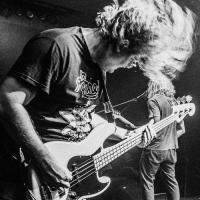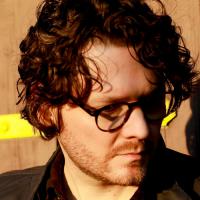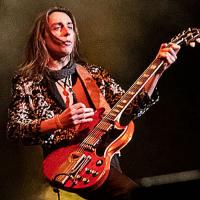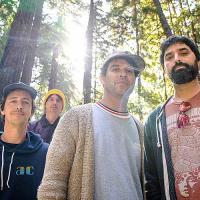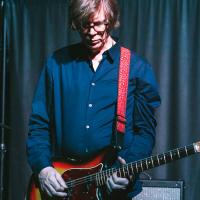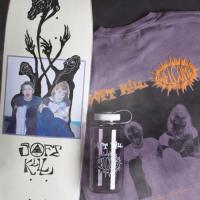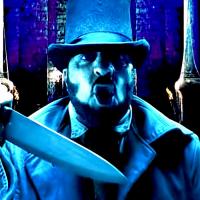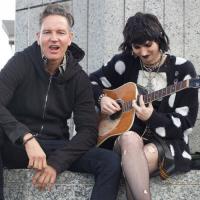Yellowman Interview

Born in Jamaica in 1956, Winston Foster, a.k.a. Yellowman, was abandoned by his parents and raised in various orphanages in Jamaica. As an albino, a trait once reviled by many in Jamaica (albinos were referred to as “dundus,” which means “ghost person”), Yellowman faced constant discrimination and aggression. To combat the negativity he faced daily, he developed a braggadocious persona and learned to sing. As the story goes, Yellowman avoided beatdowns as a child by singing to his tormentors, who couldn’t help but smile when they heard his songs. The discrimination continued into adulthood and music producers ignored him until he won the Tastee Talent Contest in 1978. The same producers who had turned him away began asking him to record, and Yellowman’s career exploded. In 1982 he was diagnosed with skin cancer and was told he had three years to live. In 1986 doctors removed part of his jaw, which permanently disfigured him, but did not diminish his positivity or musical ability. To this day, Yellowman tours America every year. If you’ve never heard him, check out the albums Zungguzungguguzungguzeng! and Operation Radication. Yellowman, the rudest dancehall toaster of all time. —Nate Denver
How did sound system battles work in the ’70s?
It depend on when. Those are the ways of dancehall days. Every town, every sound system, got a main artist. Like, you have me with Aces International. You have Brigadier the General with Jah Love, Josey Wales with Charlie Chaplin.
Would the sound system blast records or would those singers be there singing live?
Most of the time you had singers come to the dance and sing. And when they sing, we don’t play the record; we let them sing live.
Was there a lot of violence when you were making your way as a musician?
Ah, no. It wasn’t violent back in the days. Now it’s more violent because there’s two different kinds. You have reggae dancehall and you have violent dancehall. The violent dancehall is now. The reggae dancehall was then.
Is it true that as a child, when people would try to give you trouble, you’d sing to them?
Yeah, man. Because I face discrimination and prejudice every day, even now, even where I live: racism, prejudice, violence. Sometime I’m in my home like a prisoner. That’s how it go everywhere I go.
How did you decide to sing instead of fight?
Well, it’s better to make somebody happy than upset. Even if I feel bad about a situation and upset, I don’t show it. I stop it by singing for dem. I tried to make them happy. Some of them come around and apologize, some don’t. That’s the reason why a lot of people try to come around me, because they know what I got to handle. They shake hand and say they could never handle that. So I tell them that I don’t think about stress. I don’t think about negative things. I’m always thinking the positive around me, good thing. I always move forward. I never move backward. Even when it bad, I’m good. When you think about stress, that when it get worse. Stress is like a medication: when you take medication it gets worse. Sometime it works, sometime it don’t.
Did you learn that after fighting and finding you didn’t like violence?
No, I never fight. They fight me. I take the beat up. Even now I going through it. It is a part of life to me.
How did you find comfort?
I find comfort in everything, everybody. Even when they hit me. Because I’m an orphan, I don’t know my parents, I been growing up in orphanage home all through my child days. I’m comfortable with everybody. I’m comfortable with God. I’m comfortable with music. Even if it was a business I get a lot of not right from people, producers, because when I used to go to studios they used to turn me down, kick me out. And I get my chance with the sound system and the Tastee Contest, you know?

What music outside of reggae do you like?
I listen to every kind because you can learn from music. Sometimes I take a piece of other music and put it in mine. Like, “I’m Getting Married in the Morning,” that is a theme song from My Fair Lady. I like Guns N’ Roses, I like Rolling Stones, I love Stevie Wonder, Jackson 5. Music is a library and a dictionary.
Did you ever meet Johnny Cash when he had a house in Jamaica?
Ah, no. I never, but I meet Keith Richards, Herbie Hancock, Michael Bolton, Rick James, Prince and many, many more.
What’s your favorite thing about Jamaica?
There’s a lotta favorite thing about Jamaica: the beauty, the nature, the music, the people, the food—whether good or bad. I can’t love the bad part of Jamaica. I love the good part.
What do you like about the United States?
There are many things I love about the United States of America. America is a very interesting place and I love visiting. I love the political aspect of America, because in Jamaica the political aspect is not nice, very corrupt. Everywhere you go in politics here is corruption. In America it’s different, because when you corrupt, everybody comment on it, while in Jamaica they quiet it up. And also, I love the people in America. I love the US.
Were you friends with the older generation of reggae artists?
Bob Marley was one of my good friends because his mother used to love me. So I’d go to his studio, we would talk, but his children used to give me a hard time. They want me to sing for them because my style of music was different. Sometimes I’d have to tell Bob Marley, “I have to leave before your kids come back from school or I’m gonna be in trouble.” And he’d always laugh and say, “No, man! Don’t leave, man!” But I used to be around Bob and Peter Tosh a lot. We’d go to his house and talk. We talk about music, we talk about the leaders of the country, we talk about a lot of good things.
What’s a quality that you admire in people?
I respect and love the person who approach me with love and respect. Because respect is very important. Especially when you don’t know the person. I give them a lot of respect. I always am never in a hurry when I stop and talk to people, because talking to people, you learn.
Do you have any advice for dealing with fear?
No. Fear is nothing to me, you know? Fear fears me. I don’t fear because I deal with the almighty God. I am protected by my fans and almighty God. A lot of people and artists can’t go everywhere in Jamaica. I go everywhere. The roughest part in Jamaica, I been there a lot of times and no one bring harm or negative things to me because they know what I go through and the strength and resilience that I got. A lot of them come around me because they want to have that type of attitude that I have to move on with life.
Did you ever record at Studio One?
No. That’s the only studio I never recorded at. I recorded at every studio in Jamaica back in the day, except that one.
Did you ever record with Lee Perry?
No. We did a lot of shows together. I always smiling around him because he makes you smile. He’s a very unique guy and a very crazy guy also. You understand the craziness, because when you’re a genius, a lot of craziness come with it.
What about Count Ossie?
Ah, Count Ossie. I think I meet him one time, but my father-in-law is one of the original member of the Count Ossie band. They did that hit song, “Oh Carolina.”
What Jamaican food should people try?
They should try everything! Dumpling fritters, rice and beans, stir-fry chicken, curry chicken, curry goat, they can try the pork, but I don’t eat pork. The juices are good. The vegetable are very good.
Do you cook?
No, I don’t cook. I only tell people who cook it what I want and what they must cook. They can’t just cook anything and give me. But I don’t drink and I don’t smoke.
Is that new or always?
I been like this ever since. Never smoke, never drink. Because when you deal with people you have to be focused, so when you say something, especially when you’re on stage, you must know you say it from the heart and it’s real, not with interference.
Are you a Rasta?
I wouldn’t say that. I respect every man religiously. Alpha is a Catholic school. I follow the religion more, because in reggae you have a lot of Rastafari so I always around them and they always around me.
Does Christianity resonate with you?
Well, I know there is a God and I know there is another life. This life is only a test, because I think God put you in this life to watch what you do and watch how you live. I think in the next life he’ll know how to separate you from evil. I’ve dreamed visions of a lot of things, so I know there’s another life. All of my friends that leave this life, I still see them in visions and dreams. I even make love in the after life. You do everything in the afterlife that you do in this life. You know that, right?
I hope so.
Because God put you here in this life to serve your purpose, but a lot of people don’t serve their purpose in this life. That’s the reason why some of them don’t end up living right in this life.
My guess is that a foolproof purpose and a key to happiness is to help other people.
Yeah! Of course! That’s why I told you that respect is very important. You don’t tell a person that you respect a person—you have to show it.
-
2/01/2025
Skegss Interview
Australia's Skegss are the reverb drenched summer soundtrack you need. Read the exclusive Thrasher interview. -
2/01/2025
Beirut Interview
The music of Beirut has been featured in many skate vids over the years, most notably in Mark Suciu’s “Verso” masterpiece. Mark caught up with Zach Condon, the man behind the band, in this exclusive interview. -
2/01/2025
Tom DeLonge Interview
Angels & Airwaves was born out of Tom DeLonge leaving Blink-182. Here he talks about charting that band’s own path along with his thoughts on skating and UFOs. -
2/01/2025
Greta Van Fleet Interview
Using musical chemistry, the band members of Greta Van Fleet extract the essence of various classic rock anthems. They combine the parts they like and create a sound all their own. These guys truly rock and roll. -
2/01/2025
Mononeon Interview
The term "musical prodigy" doesn't quite capture the bass-playing abilities of Mononeon. It's more accurate to say he's one of the best to ever pick up the instrument. See for yourself. -
2/01/2025
Animal Collective Interview
Animal Collective blew up in the skate world when their song was used in Jake Johnson's Mind Field part—which is regarded as a masterpiece of skating/editing/music. The band's unique legacy and sound has only gotten stronger in the following years. -
2/01/2025
Thurston Moore's Interview
Thurston is a founding member of Sonic Youth and a guitar virtuoso. His various projects have created a rich musical legacy. He also has deep roots with skating and video-making. Here he describes the mutual affection between skating and his music. -
2/01/2025
Soft Kill x Welcome Skateboards
Welcome gets the singer from Soft Kill on the line to discuss music, addiction and their recent collaboration. -
2/01/2025
R.A. the Rugged Man Interview
During his 30-year career, R.A. has occupied both the spotlight and the status of an underground hip-hop legend. His song "Uncommon Valor" is regarded as a lyrcial masterpiece and he shows no signs of stopping. -
2/01/2025
Third Eye Blind Interview
After millions of album sales since the mid-90s, Third Eye Blind frontman Stephan Jenkins continues to make music without compromise or concern about radio hits and pop charts. He features Cher Strauberry in his newest video and she sat with him for an interview.
